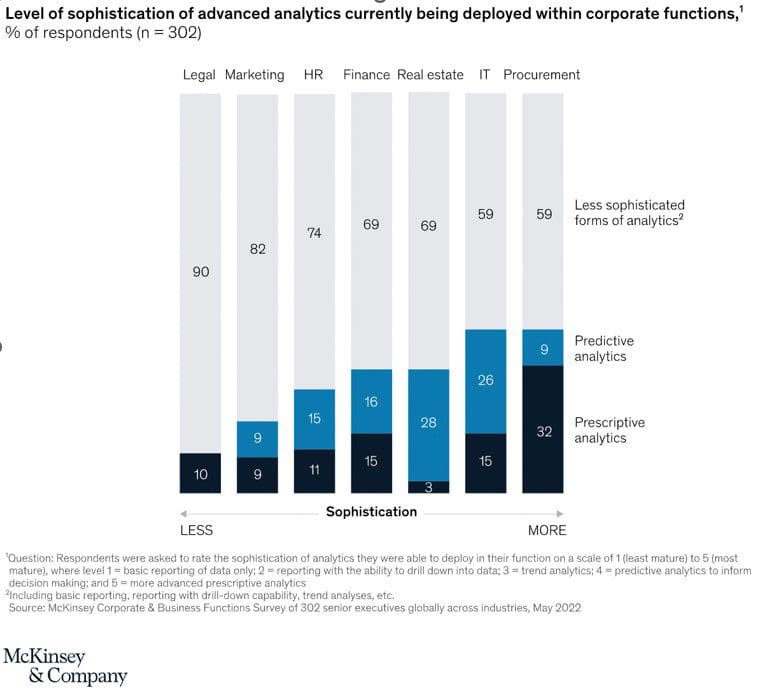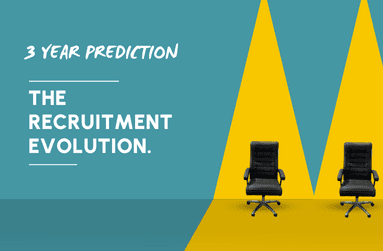
Explore the evolution of recruitment. Discover what to expect in the next 3 years and the future of hiring practices.

The recruitment process has changed considerably since the early 2000s. Job openings used to be posted in newspapers or other public places by employers. Potential employees would subsequently submit physical copies of their resumes to the employers. The recruitment process would continue through phone calls and face-to-face meetings. Fast forward to 2023, and the entire process has shifted online. Employers post job vacancies on different job boards online. Candidates can easily apply for several openings simultaneously and keep track of each paperless progress thanks to the Internet.
In this report, we will discuss how the recruitment process has evolved and what are the expected recruitment predictions for the next 3 years.
Recruitment Predictions within the Recruitment Process
Digital transformation of the recruitment process
Workplace digitalisation offers benefits such as increased flexibility, productivity, and efficiency to employees and managers alike. For Human Resources (HR) managers, it helps streamline the talent acquisition process, as it provides IT solutions for recruitment and management purposes.
One of the most significant changes to the recruitment process is that it is now so much easier for HR professionals to schedule and meet with candidates. Before, the process can be considered time-consuming and tedious. There now exists software that helps make appointments for recruiters and gives them more time to prepare for the actual meeting. Video interviews also offer a reliable solution for hiring managers to meet with the candidate.
Moreover, there is currently an emphasis on soft skills over hard skills, according to Deloitte (a). Recruiters want to know if the candidate can learn new skills, adapt to changing working environments, and handle stress. Companies need to hire individuals that are flexible, resourceful, and willing to grow with them.
From the perspective of job seekers, digitalisation has increased the amount of information they can gather about potential employers, giving candidates more insight into the company they are applying to and offering them leverage during the interview process. Technology has also allowed candidates to submit applications at any time from anywhere and provide them with increased access to job openings thanks to the internet (Gartner report-a). Having seen some of the changes to the recruitment process, there are certain things that we can expect to see in the next 3 years.
Increased Use of Artificial Intelligence (AI) in Recruitment
According to a McKinsey survey (a), 53% of organisations are increasing advanced-analytics investments for general and administrative functions in the coming years. Currently, only 15% of those surveyed have deployed predictive analytics in HR functions.

Figure 1: Level of sophistication of advanced analytics currently being developed within corporate functions (Source: McKinsey & Company)
Therefore, increased investment in AI solutions, particularly in predictive analytics, will be a major priority for organisations. Predictive analyses make use of existing employee data to assess and anticipate candidate behaviours and eventually determine the profile of the candidate. Recruiters can identify star candidates faster and improve their hiring strategies.
Generation Z population is one of the first that grew up with computing games, with 70% of people under the age of 25 preferring gaming over watching videos (McKinsey-b). Thus, gamification of the assessment process is another growing trend that will be adopted by organisations in the coming years. Not only does it appeal to Gen Z, who are replacing Boomers in the job market, but it also obtains personal and professional insights into candidates.
With the continuous advancement of technologies and endless AI inventions, it is safe to wonder about the future roles of humans in the recruitment process given the increasing technology adoption. AI can indeed assist with repetitive and time-consuming tasks. It improves efficiency and productivity, but it does not replace humans in recruitment. AI lacks the innate understanding of basic human needs and empathy. This technology will continue being adopted in HR functions, but its sole purpose will be to “assist” its users and “enhance” the quality of work.
Widening Skills Gap and Expansive Hiring
Digitalisation is causing rapid changes in the skills that an employee should possess to maintain the same job position (based on a Gartner report b). To address the widening skills gap, organisations need to upskill their employees by offering them training programmes to learn new skills adjacent to their current skill sets. Education and training will require resources, something that not all organisations are willing to provide due to the potential recession. Another approach to solving the increasing skills gap is to look externally. However, the hunt for qualified talents is fierce in the job market. There is intense competition to acquire talents with the required skills.
Thus, HR practitioners need to diversify their recruitment tactics and channels to reach qualified candidates. For example, social media can be exploited to post job vacancies (McKinsey-c) to reach upcoming Gen Z workers more efficiently. Recruiters can also adopt creative methods and utilise niche job boards to attract talents with different backgrounds who are just as qualified.
Hybrid Flexibility
After Covid-19 restrictions, employees are slowly going back to the office despite having gotten used to working from the comfort of their homes. That being said, a recent Deloitte research found that new Gen Z professionals would still opt for hybrid working, as opposed to fully remote work. However, most hiring scenarios will still take on a hybrid nature, with candidates only coming in at the later stages of recruitment or the onboarding process being fully remote.
Furthermore, a Gartner survey indicated that 59% of candidates surveyed would rather forego an offer with a 10% pay increase for another one with a better work-life balance. Therefore, it is wise to expect employees to demand a more flexible workplace where they can organise their working schedules catered to the perfect work-life balance.
Diversity, Equity, Inclusion and Belonging (DEIB)
Recruitment will see the increasing incorporation of DEIB values in the next few years. As the Gen Z population strongly believe that actions speak louder than words, companies must demonstrate their commitment to aid in battling societal challenges such as climate change and sustainability (Deloitte-C). If failed to establish involvement, young professionals would rather try their luck elsewhere. Furthermore, Gartner research (d) revealed that 50% of candidates experiencing bias during the recruitment process will discontinue their application and that employees are 63% less likely to be performant and efficient when diversity and gender issues are not treated properly in teams. Therefore, it would be in the best interest of companies to invest in DEIB measures to obtain the highest return on investment in employees.
Conclusion
To conclude, the recruitment process has come a long way since the introduction of the Internet. It has made it easier for candidates to seek new jobs and for recruiters to match with top talents. In the upcoming 3 years, recruiters can be expected to invest in AI technologies to facilitate talent acquisition and other recruitment channels such as social media to expand their search. Moreover, it is also likely that hybrid working will become mainstream, employer branding will be even more crucial to organisations in terms of recruitment, and DEI initiatives will become common HR tactics.




